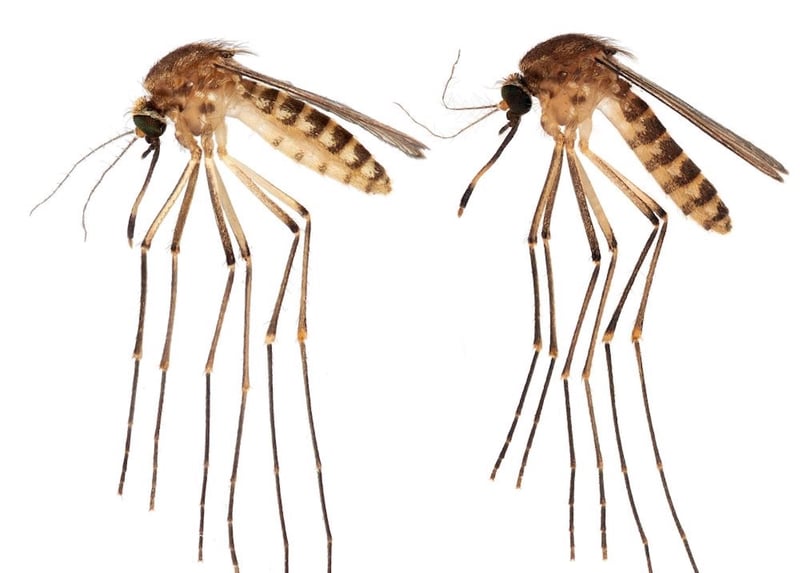Get Healthy!

- Cara Murez
- Posted March 24, 2023
New Tropical Species of Mosquito Migrates Into Florida
Florida has yet another new mosquito species in its midst that has migrated from the tropics, settling in at least three counties since 2018.
It's not yet clear whether this one, called Culex lactator, will contribute to transmission of mosquito-borne viruses in the state, but scientists are concerned about the rate of new mosquitoes arriving in Florida.
"There are about 90 mosquito species living in Florida, and that list is growing as new mosquito species are introduced to the state from elsewhere in the world,"said lead study author Lawrence Reeves, an assistant professor and mosquito biologist at the University of Florida's Institute of Food and Agricultural Sciences Research Center in Vero Beach.
Culex lactator was first discovered in southern Miami-Dade County in 2018 and is now in Collier and Lee Counties. It may already have spread elsewhere in the state, Reeves said.
While mosquitoes are among the most studied insects, there are large gaps of knowledge, he said.
"That's particularly true for species from the tropical forests, where mosquitoes are diverse and understudied,"Reeves said in a university news release.
"Introductions of new mosquito species like this are concerning because many of our greatest mosquito-related challenges are the result of nonnative mosquitoes, and in a case like this, it's difficult to anticipate what to expect when we know so little about a mosquito species," he noted.
Culex lactator is a member of the Culex group of mosquitoes, which includes species that transmit the West Nile and St. Louis encephalitis viruses. It is typically found in Central America and northern South America.
Reeves and his team used DNA analysis and other tools to discover that there was a new species in the area and to identify it among more than 3,600 types of mosquitoes found around the world.
Florida faces challenges each year from mosquito-transmitted diseases like West Nile virus, eastern equine encephalitis virus, dengue virus, chikungunya virus and others.
"It's too early to know whether Culex lactator will exacerbate these challenges, but the implications are often difficult to predict because not all mosquito species are equally capable of transmitting a particular virus or other pathogen,"Reeves said.
Each mosquito-borne virus is transmitted by only certain mosquito species, he said.
"We need to be vigilant for introductions of new mosquito species because each introduction comes with the possibility that the introduced species will facilitate the transmission of a mosquito-transmitted disease,"Reeves said.
The findings were published March 22 in the Journal of Medical Entomology.
"Culex lactator is physically similar to mosquito species already known from Florida. It looks like other more common mosquito species,"said Reeves. "Because of that similarity, the presence of Culex lactator in an area can be easy to miss."
As many as 17 nonnative mosquito species are established in the Florida. And detections of nonnative mosquito species are increasingly frequent, with 11 of 17 nonnative species first reported in the past two decades. Six were detected in only the past five years.
The mosquitoes Aedes aegypti, Aedes albopictus and Culex quinquefasciatus are all nonnative species, introduced from the tropics and among the most important disease vectors in the United States.
"Climate change may improve the chances of tropical mosquito species becoming established once they make it to Florida if the state becomes warmer,"Reeves said. "Increasing storm frequency and intensity could also blow in more mosquitoes and other species from the Caribbean, Central America and elsewhere."
More information
The U.S. Centers for Disease Control and Prevention has more on mosquito-borne diseases.
SOURCE: University of Florida, news release, March 22, 2023







